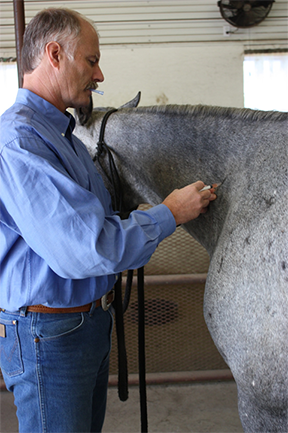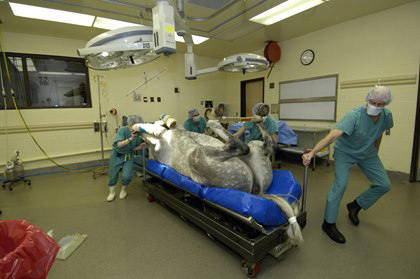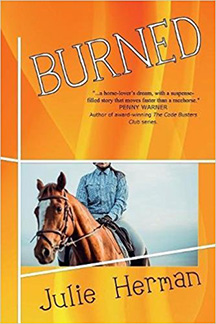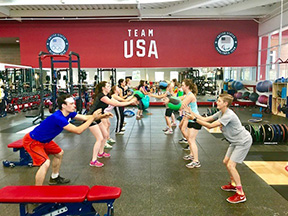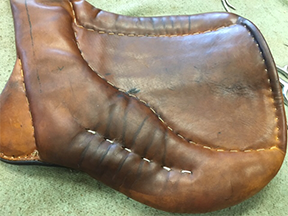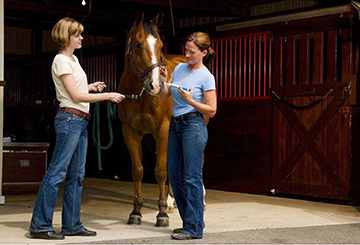-
Blue Bridle Insurance presents: A Horse For Christmas
Thanks to new Pony Club Pizza blog sponsor, Blue Bridle Insurance we now have a series explaining Horse Insurance. Was there a horse on your wish list for Christmas? And did Santa manage to get it down the chimney? Ho, ho, ho – probably not, but you rushed to the stable to see that your wish did come true! Now let’s hope that you have done your homework and understand that horse ownership comes with a great responsibility, not the least is the never ending expense. Be prepared for the routine cost of boarding and training, bills from the vet and the farrier. And if this is to be a…
-
Blue Bridle Insurance presents: Equine Liability
Thanks to new Pony Club Pizza blog sponsor, Blue Bridle Insurance we now have a series explaining Horse Insurance. Does your insurance properly cover your equine liability exposures? Many private horse owners assume that their homeowners insurance will cover them if there is a third party claim against them. The fact is that many homeowners policies do not cover equine liability. And if you are in the horse business, even on a small scale, you risk losing everything if you are confronted with a law suit and do not have proper insurance coverage to provide defense and to protect your assets. As a horse owner, you realize the importance of…
-
Merck Animal Health Presents: Vaccinations
The Remarkable Work of Vaccinations By Duane Chappell, D.V.M., Merck Animal Health Your horse’s immune system does extraordinary and complex work, but even this intricate defense mechanism can’t go it alone. Vaccination has proven to be an extremely effective and safe way to provide a targeted boost to the immune system to help safeguard horses against deadly infectious diseases. Preventing disease through proper vaccination is far safer, easier and more economical than treating the disease after the horse is already sick. Many diseases that horses encounter are preventable and vaccination is solid insurance, not to mention an important biosecurity measure to help prevent mass outbreak of disease. In addition, some…
-
Blue Bridle Insurance presents: Emergency Colic
Thanks to new Pony Club Pizza blog sponsor, Blue Bridle Insurance we now have a series explaining Horse Insurance. Colic is the # 1 cause of death for horses age 1 to 20. It is some consolation to know that Mortality insurance policies include Emergency Colic Surgery Expense coverage at no extra charge. The limits and conditions included in the policy vary depending on the insurance carrier so this may be something for you to consider when making your selection. Limits range from $3,000 to $5,000. Some limits are capped at the agreed value of the horse that is insured or some pay a percentage of the insured value, whichever…
-
An Ode to Clive
Sometimes our membership shares wonderful stories. In this case its a poem written to a horse who greatly impacted many people. Read on about Clive aka Cruising Altitude who sadly crossed the rainbow bridge on July 6th. Ode to Clive aka Cruising Altitude July 21,1996-July 6,2017 I Had an Irish Horse By Alecia Haselton To all Irish horses wherever you be You’re God’s gift to mankind I’m so thankful for thee To all Irish horses The breed it is blessed (say “blest”) They have a great heart And their minds are the best I look forward to Heaven If ever I’m there I’ll ride an Irish horse It will be…
-
Merck Animal Health Presents: EPM Treatment Effectiveness
When it Comes to EPM Not Just Any Treatment Will Do Brought to you by Merck Animal Health Stumbling. Weakness and muscle atrophy in the hind end. Behavioral changes. Lameness. Any of these could be a sign your horse has equine protozoal myeloencephalitis (EPM). It can have devastating effects on a horse’s ability to perform. A progressive and potentially fatal infection of the central nervous system, EPM is caused by a single-celled protozoal microorganism, most commonly Sarcocystis neurona (S. neurona), and is primarily transmitted by opossums through their feces. EPM is one of the most common neurological diseases of horses in North America. Researchers estimate that approximately 30 to 80%…
-
Burned: A Pony Club Mystery
Julie Herman, author of Burned, gives us a great review of her new series. This series aimed at middle grade equine lovers is available at Shop Pony Club or Amazon.com (be sure to use the SMILE program and designate Pony Club as the recipient!). It took me a long five years to write BURNED. Even from the first draft of the book, I knew that capturing Sophie’s voice was going to take a lot of effort. I have been a twelve-year-old girl, but that was a long time ago. Fortunately, there are a lot of Pony Club members I could use as example of how they think and speak to…
-
Rider Athletic Camp at the US Olympic Center
Have you ever wanted to ride and train like an Olympian? Share in the Olympic experience this year! For the first time ever, the United States Olympic Committee (USOC) and Coach Daniel Steward have gotten together to create equestrian athlete training camps for riders of any age, riding level, and discipline. The clinics are held at the US Olympic Training Centers in Colorado Springs, Colorado and Sarasota, Florida. Most camps run Friday to Monday with a Friday night dinner and welcome reception. Tuition includes all meals in the athletes dinning hall and shared-accommodations in the athlete dorms from Friday night to Monday afternoon. Each day begins at 7AM with a…
-
Tales of a Pony Club Saddlemaker-In-Training Part 3
Adrienne Hendricks, H-A graduate, Boise Pony Club, in the Intermountain Region has agreed to blog her journey as an Apprentice Saddle Maker. Follow along as Adrienne shares her highs and lows of becoming a Master Saddler Here is an older saddle that needed to be re-flocked. This turned out to be a great way to show how to re flock a wool panel and also how the panels are attached to the tree. It helped that I needed to use white tread so you can see the stitching easier. The term “reflock” can cause lots of confusion as adjustments often get lumped into the term “reflock”. An adjustment or spot…
-
Merck Animal Health Presents: Deworming Effectiveness
Keys to Effectively Deworming Your Horse Brought to you by Merck Animal Health Gone are the days when you just grabbed a tube of whichever dewormer was on sale. We know now that the most effective deworming program involves treating the right horse at the right time for the right parasites. The key is to work with your veterinarian to conduct fecal tests to determine your horse’s shedding status (how much and of which parasites he is shedding), then customize the deworming protocol. Low egg shedders typically require only two dewormings a year, whereas high shedders may require up to six treatments. Horses that spend most of their time in…


